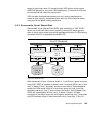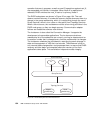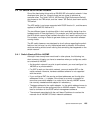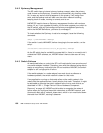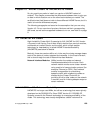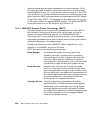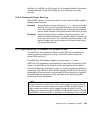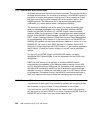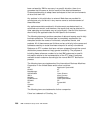
HACMP Classic vs. HACMP/ES vs. HANFS 201
See Part 4 of
HACMP for AIX, Version 4.3: Enhanced Scalability Installation
and Administration Guide
, SC23-4284, for more information on these
services.
10.2.2 Enhanced Cluster Security
With HACMP Version 4.3 comes an option to switch security Mode between
Standard and Enhanced.
Standard Synchronization is done through the
/.rhosts remote command
facilities. To avoid the compromised security that the presence
of this file presents, the administrator is strongly encouraged to
remove these files after the synchronization/verification is done.
Enhanced Kerberos authentication is used for remote commands. That
means the kerberos daemons can decide whether a remote host
is who they claim to be. This is done by granting access on the
basis of tickets, which are provided only to those hosts having
the correct identification.
10.3 High Availability for Network File System for AIX
The HANFS for AIX software provides a reliable NFS server capability by
allowing a backup processor to recover current NFS activity should the
primary NFS server fail.
The HANFS for AIX software supports only two nodes in a cluster.
HANFS for AIX is based on High Availability Cluster Multi-Processing for AIX,
Version 4.3 (HACMP for AIX Classic) product architecture, which ensures
that critical resources, configured as part of a cluster, are highly available for
processing. The HANFS for AIX software extends HACMP for AIX by taking
advantage of AIX extensions to the standard NFS functionality that enable it
to handle duplicate requests correctly and restore lock state during NFS
server failover and reintegration.
A cluster cannot be mixed, that is, have some nodes running the HANFS
for AIX software and other nodes running the HACMP for AIX software. A
single cluster must either have all nodes running the HANFS for AIX
software or all nodes running the HACMP for AIX software. Distinct HANFS
and HACMP clusters, however, are allowed on the same physical network.
Note



